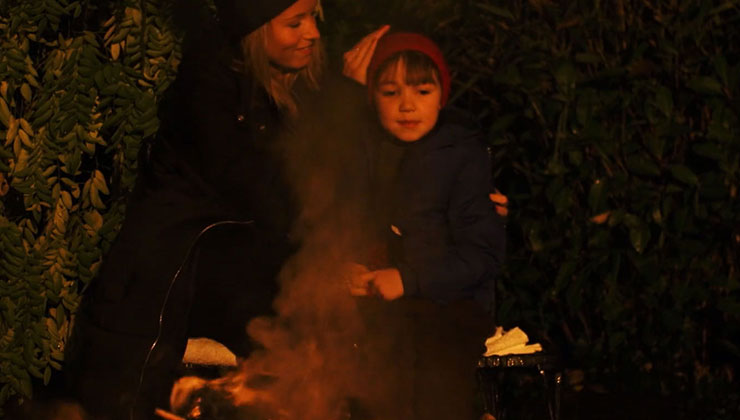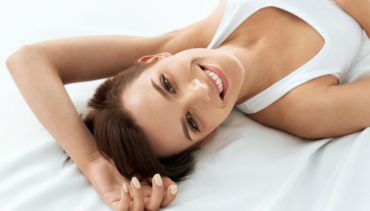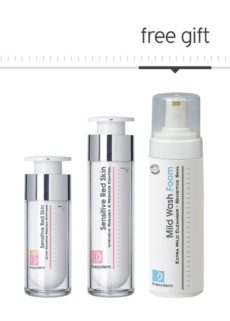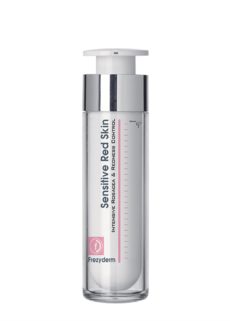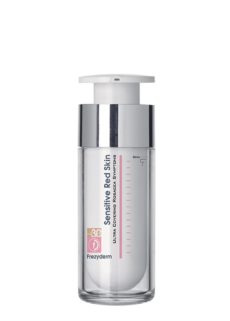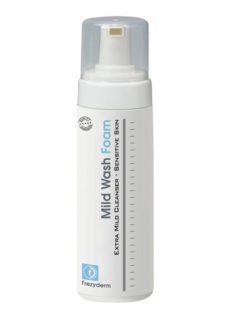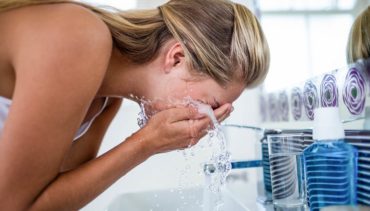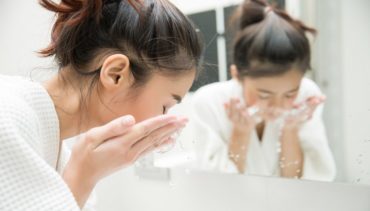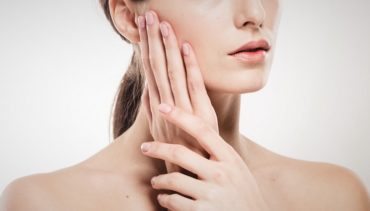
Sensitive Skin or Rosacea?
Whenever you look yourself in the mirror you just so happen to notice a rather distinctive yet particularly annoying redness around your cheeks? You’re pretty sure you’re not experiencing any embarrassment of any sort…but the situation itself makes you blush (even more)?
Is it because your skin is a delicate flower like you… or perhaps… rosacea?
Their differences can be almost indiscernible, making it easy to misdiagnose but there are some guidelines to navigate through the symptoms…
What does it look like and feel?
Sensitive skin looks generally reddish and irritated and will generally feel itchy, stinging or even swollen.
Rosacea will appear reddish with possible extras, such red bumps if we’re talking about Acne Rosacea or visible red vessels with the appearance of broken capillaries, if we’re talking about telangiectatic Rosacea.
Overtime, the skin may become thickened especially around the area of the nose and chin.
If the redness is persistent or the thickening of skin is an undeniable fact, we’re probably talking about rosacea and not just sensitive skin.
What triggers a flare-up?
Sensitive skin symptoms aggravate as a reaction to certain allergens such as make- up, anti-ageing creams or perfumes. The symptoms will easy off, once the allergen gets out of the picture.
Rosacea can have multiple triggers, with the top 5 being:
- Sun exposure 81%
- Emotional stress 79%
- Hot weather 75%
- Wind 57%
- Heavy exercise 56%
Relieving of symptoms may entail a calmer composure, sun avoidance or High SPF when wearing sunscreen or even avoiding spicy foods.
How do you treat it?
Sensitive Skin is a type of skin, not a skin condition to be cured.
What you can do, is observe carefully how your skin reacts to certain products and avoid like the plague, whatever triggers irritation.
Whether sensitive skin or rosacea, it is advisable to use a very mild cleanser, in a form that doesn’t need any rubbing to activate and a treatment cream for the symptoms which also hydrates and soothes the skin while creating a protective barrier.
Unfortunately, you cannot treat rosacea, but you can do your best to alleviate the symptoms when there’s a flare up with certain triggers getting out of hand.
Also, when choosing skincare products, just make sure that don’t contain Rosacea triggering agents.



